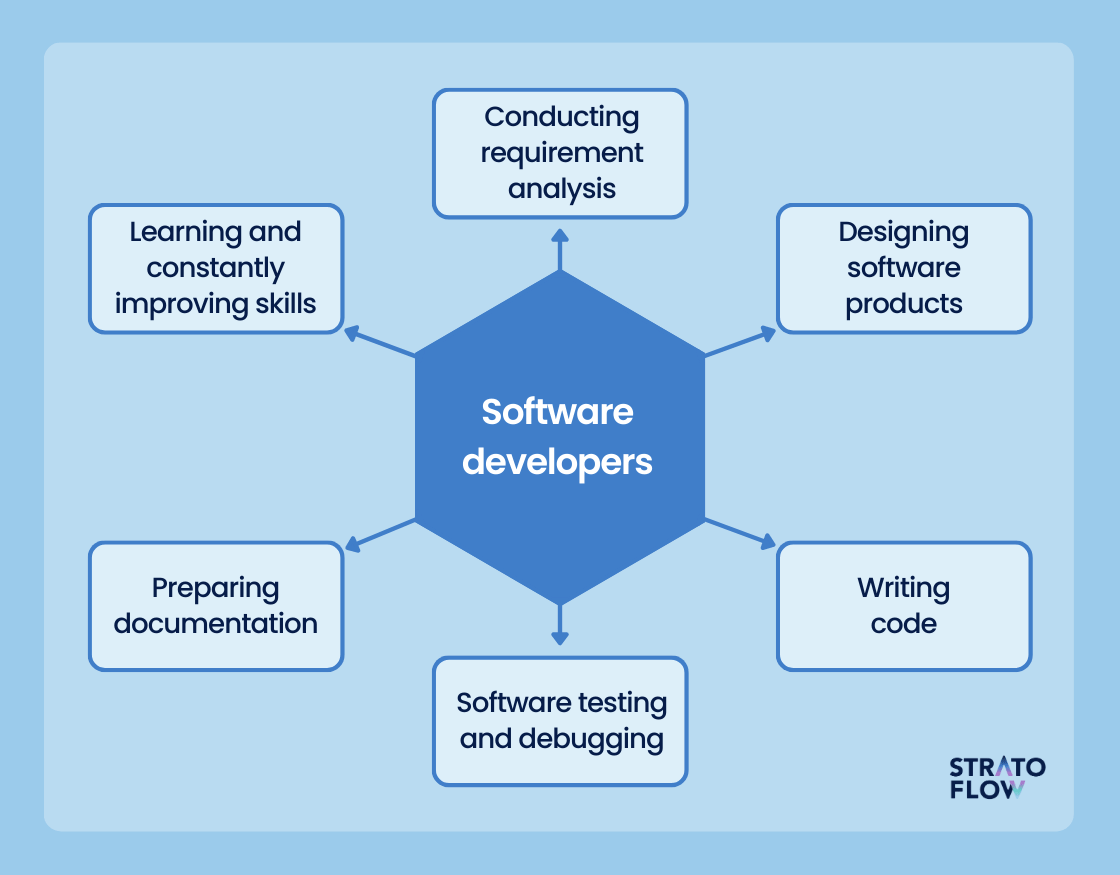Discover the Advantages of Nearshore Software Development for Your Team
Committed Developers vs. In-House Teams: Which Is Right for You?
The decision in between utilizing specialized programmers and maintaining an internal team is a considerable one that can influence the trajectory of your projects and total organization approach. Committed programmers provide a level of versatility and specific proficiency that can be beneficial for certain, short-term efforts. On the other hand, internal groups add to a cohesive business culture and a nuanced understanding of long-lasting goals. By taking a look at crucial elements such as budget plan, job scope, and desired control, you can better identify which strategy straightens with your business requirements. However, the implications of this choice extend beyond immediate outcomes-- consider the more comprehensive effect on your business landscape.
Recognizing Committed Developers
The growing demand for specialized skills in the technology sector has actually resulted in the emergence of devoted programmers as a feasible service for numerous companies. These professionals are normally gotten on a job basis, allowing companies to utilize certain knowledge without the long-term commitment related to full-time hires. Devoted designers are frequently embedded within a client's group, offering flexibility and scalability to satisfy task requirements.
This version permits companies to access a global skill swimming pool, which is particularly helpful in a rapidly evolving technological landscape. Committed developers can be sourced from different geographical areas, guaranteeing that business can locate the ideal ability set at competitive rates. They commonly bring a wide range of experience and knowledge, having dealt with diverse jobs throughout various sectors.
Moreover, devoted designers can concentrate specifically on the jobs at hand, enhancing efficiency and effectiveness. They are outfitted to incorporate flawlessly right into existing operations, teaming up very closely with internal groups to attain task purposes. This strategy not just lowers the worry of employment and training yet likewise enables companies to continue to be dexterous, adjusting promptly to transforming market needs and technological developments.
Advantages of In-House Teams

Additionally, internal teams have a tendency to have a deeper understanding of the company's mission, worths, and objectives. This positioning can boost worker involvement and motivation, as group participants feel a lot more attached to their work and the organization's success. Furthermore, having a dedicated in-house team permits far better alignment of goals and methods, as these participants are consistently concentrated on the business's top priorities.
Internal groups also help with quicker decision-making processes, as they can respond a lot more swiftly to challenges and modifications. The well established partnerships and knowledge with company protocols permit streamlined workflows and decreased miscommunication. Eventually, the combination of a cohesive culture, positioning with organizational goals, and efficient communication makes in-house teams a valuable asset for numerous organizations, particularly those looking to cultivate long-term growth and advancement.
Price Considerations
When examining expense considerations, both devoted developers and internal groups present distinctive monetary implications for companies. Engaging devoted programmers generally entails a pay-per-project or per hour rate model, which can be cost-efficient for organizations with changing job demands. Recommended Reading This strategy permits flexibility in scaling sources up or down, making sure that companies just pay for the services slack developer they need.
On the other hand, internal teams require repaired prices, consisting of salaries, advantages, and overhead expenditures such as office and devices. While this model supplies higher control and immediate schedule of sources, it may lead to greater lasting costs, specifically if the workload does not justify a permanent personnel.
In addition, business should think about the hidden expenses connected with recruitment and training of in-house workers, which can even more stress spending plans. Sometimes, the moment and resources spent on handling an in-house team can detract from the company's core business goals.

Task Monitoring and Adaptability
Task administration and flexibility are essential elements that affect the option in between specialized programmers and in-house groups. Committed teams commonly have developed processes for handling projects successfully, leveraging specific methods like Agile or Scrum, which assist in iterative development and flexibility.

Inevitably, the option between dedicated programmers and internal teams rests on the wanted degree of flexibility and the details task management requirements. Business should evaluate their functional dynamics, job complexity, and source availability to determine which choice aligns ideal with their tactical purposes.
Making the Right Option
Picking the appropriate development method-- in-house teams or specialized programmers-- calls for a careful assessment of various elements that line up with a business's calculated objectives. Alternatively, internal groups can give far better connection and assimilation with existing employees.
Following, review your spending plan. Committed programmers often present an economical option for short-term jobs, while in-house teams might sustain higher long-term expenses due to wages, advantages, and expenses expenses. Assess the level of control and cooperation desired; in-house groups typically cultivate more powerful interaction and positioning with business culture.
Additionally, take into consideration the moment framework. If immediate outcomes are needed, devoted developers can be onboarded swiftly, whereas developing an in-house group takes some time for recruitment and training. Ultimately, weigh the long-term vision of your organization. If continuous growth is crucial, buying an internal team might generate far better returns gradually. Eventually, the choice hinges on a comprehensive evaluation of these aspects, ensuring positioning with your company's operational requirements and total objectives.
Conclusion
In final thought, the decision between in-house teams and devoted developers rests on task demands and business purposes. Committed developers supply adaptability and specific know-how, making them ideal for temporary initiatives. Alternatively, internal teams cultivate a natural culture and much deeper placement with long-term objectives. Careful examination of budget restrictions, job timelines, and wanted control degrees is essential for establishing one of the most proper technique, ensuring positioning with tactical investigate this site priorities and functional efficiency.
The decision in between utilizing devoted programmers and preserving an in-house group is a significant one that can affect the trajectory of your projects and total business approach.Job management and flexibility are critical elements that influence the option in between committed programmers and internal groups. software development partner.In comparison, in-house groups might excel in keeping a constant job management framework due to their familiarity with the company's culture and lasting objectives. Devoted developers usually provide a cost-effective service for temporary tasks, while in-house teams might sustain greater long-term expenses due to incomes, benefits, and expenses prices.In verdict, the choice between internal groups and committed developers hinges on project demands and business goals